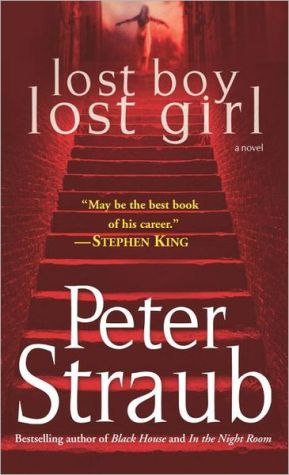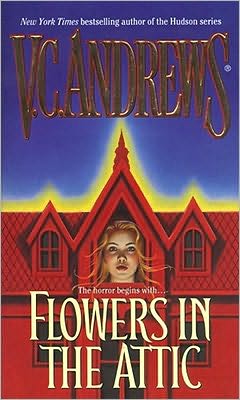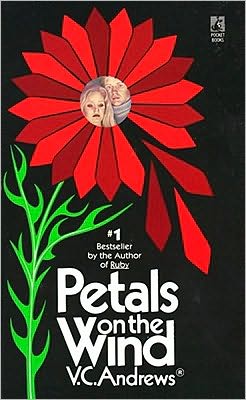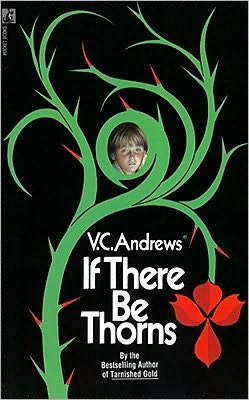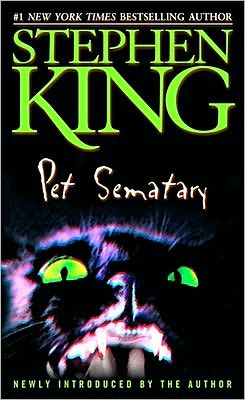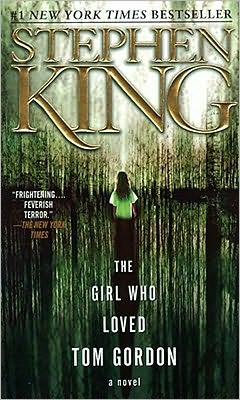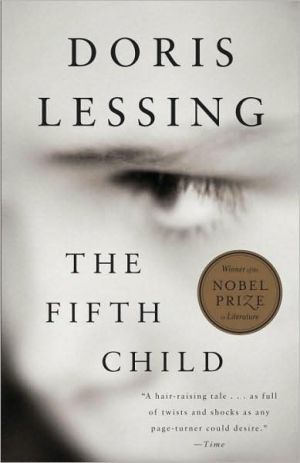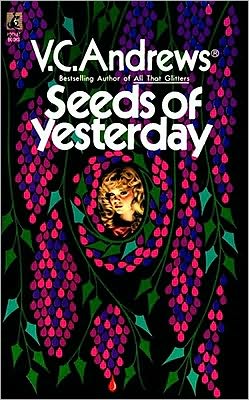Lost Boy Lost Girl
A woman commits suicide for no apparent reason. A week later, her son– fifteen-year-old Mark Underhill–vanishes. His uncle, novelist Timothy Underhill, searches his hometown of Millhaven for clues that might help unravel this horrible dual mystery. He soon learns that a pedophilic murderer is on the loose in the vicinity, and that shortly before his mother’s suicide, Mark had become obsessed with an abandoned house where he imagined the killer might have taken refuge. No mere empty building,...
Search in google:
A woman commits suicide for no apparent reason. A week later, her son– fifteen-year-old Mark Underhill–vanishes. His uncle, novelist Timothy Underhill, searches his hometown of Millhaven for clues that might help unravel this horrible dual mystery. He soon learns that a pedophilic murderer is on the loose in the vicinity, and that shortly before his mother’s suicide, Mark had become obsessed with an abandoned house where he imagined the killer might have taken refuge. No mere empty building, the house whispers from attic to basement with the echoes of a long-hidden true-life horror story, and Tim Underhill comes to fear that in investigating its unspeakable history, Mark stumbled across its last and greatest secret: a ghostly lost girl who may have coaxed the needy, suggestible boy into her mysterious domain.The New York TimesInquisitive and open-minded as Tim is, he makes it easy for Mr. Straub to move from conventionally hair-raising effects ("the wooden surface felt furry and scratchy, and softer than it should have been, like the hide of a long-dead bear") to the more happening teenage world of cyberscares. Strongly visual without resorting to second-hand cinematic imagery, the book is equally well equipped to play both kinds of tricks. — Janet Maslin
Chapter 1\ \ Nancy Underhill’s death had been unexpected, abrupt—a death like a slap in the face. Tim, her husband’s older brother, knew nothing more. He could scarcely be said really to have known Nancy. On examination, Timothy Underhill’s memories of his sister-in-law shrank into a tiny collection of snapshots. Here was Nancy’s dark, fragile smile as she knelt beside her two-year-old son, Mark, in 1990; here she was, in another moment from that same visit, snatching up little Mark, both of them in tears, from his baby seat and rushing from the dim unadorned dining room. Philip, whose morose carping had driven his wife from the room, sat glaring at the dried-out pot roast, deliberately ignoring his brother’s presence. When at last he looked up, Philip said, “What?”\ \ Ah Philip, you were ever a wonder. The kid can’t help being a turd, Pop said once. It seems to be one of the few things that make him feel good.\ \ One more of cruel memory’s snapshots, this from an odd, eventful visit Tim had paid to Millhaven in 1993, when he flew the two and a half hours from La Guardia on the same carrier, and from all available evidence also the same craft, as this day: Nancy seen through the screen door of the little house on Superior Street, beaming as she hurried Tim-ward down the unlighted hallway, her face alight with the surprise and pleasure given her by the unexpected arrival on her doorstep of her brother-in-law (“famous” brother-in-law, she would have said). She had, simply, liked him, Nancy had, to an extent he’d understood only at that moment.\ \ That quietly stressed out little woman, often (Tim thought) made wretched by her husband and sewn into her marriage by what seemed determination more than love, as if the preparation of many thousands of daily meals and a succession of household “projects” provided most of the satisfaction she needed to keep her in place. Of course Mark must have been essential; and maybe her marriage had been happier than Tim imagined. For both their sakes, he hoped it had been.\ \ Philip’s behavior over the next few days would give him all the answers he was likely to get. And with Philip, interpretation was always necessary. Philip Underhill had cultivated an attitude of discontent ever since he had concluded that his older brother, whose flaws shone with a lurid radiance, had apparently seized from birth most of the advantages available to a member of the Underhill clan. From early in his life, nothing Philip could get or achieve was quite as good as it would have been but for the mocking, superior presence of his older brother. (In all honesty, Tim did not doubt that he had tended to lord it over his little brother. Was there ever an older brother who did not?) During all of Philip’s adult life, his grudging discontent had been like a role perfectly inhabited by an actor with a gift for the part: somewhere inside, Tim wanted to believe, the real Philip must have lived on, capable of joy, warmth, generosity, selflessness. It was this inner, more genuine self that was going to be needed in the wake of Nancy’s mysterious death. Philip would need it for his own sake if he were to face his grief head-on, as grief had to be faced; but more than that, he would need it for his son. It would be terrible for Mark if his father somehow tried to treat his mother’s death as yet another typical inconvenience different from the rest only by means of its severity.\ \ From what Tim had seen on his infrequent returns to Millhaven, Mark seemed a bit troubled, though he did not wish to think of his nephew in the terms suggested by the word “troubled.” Unhappy, yes; restless; unfocused; afflicted with both a budding arrogance and what Tim had perceived was a good and tender heart. A combination so conflicted lent itself naturally to restlessness and lack of focus. So, as far as Tim remembered, did being fifteen years old. The boy was trim and compact, physically more like his mother than his father: dark-haired and dark-eyed—though presently his hair was clipped so short its color was merely some indeterminate shade of darkness—with a broad forehead and a narrow, decisive chin. Two steel rings rode the outer ridges of his right ear. He slopped around in big T-shirts and oversized jeans, alternately grimacing and grinning at the music earphoned into his head from an improbably tiny device, an iPod or an MP3 player. Mark was devoted to a strange cross section of contemporary music: Wilco, the Magnetic Fields, the White Stripes, the Strokes, Yo La Tengo, Spiritualized, and the Shins, but also Bruce Springsteen, Jimmy LaFave, and Eminem, whom he seemed to appreciate in an ironic spirit. His “pin-up girl,” he had informed his uncle in an e-mail, was Karen O of the Yeah Yeah Yeahs.\ \ In the past sixteen months, Mark had e-mailed his uncle four times, not so briefly as to conceal a tone Tim found refreshing for being sidelong, sweet, and free of rhetorical overkill. Mark’s first and longest e-mail used the excuse of a request for advice, Tim thought, as a way to open communications between them.\ \ From: munderhill697@aol.com\ \ To: tunderhill@nyc.rr.com\ \ Sent: Sunday, February 3, 2002 4:06 PM\ \ Subject: speak, o wise one\ \ hi de ho\ \ this is your nephew mark in case u couldn’t decipher the from line. so I was having this lil disagreement with my father, and I wanted 2 ask your advice. after all u managed 2 get out of this burg & travel around & u write books & u live in nyc & all that means u shd have a pretty open mind. I hope it does.\ \ bcuz u & u alone will decide what i do next. my dad sez he will go along with u no matter what. I dunno maybe he doesn’t want 2 have 2 decide. (mom sez, quote, don’t ask me, I don’t want to hear abt it, unquote. that’s what mom sez.)\ \ i turn 14 next month and 2 celebrate my bday I’d like 2 get a tongue piercing. 1 of my friends has a pierced tongue and he sez it isn’t 2 painful at all and its over in a jiff. I’d really like 2 do this. don’t u think 14 is the rite age 2 go out and do something dumb, provided u do think it is dumb to pierce your tongue, which I obviously do not? in a year or 2 I’ll take it out & go back 2 being boring & normal. or what d’you say, move up 2 a cool tat?\ \ waiting 2 hear from the famous unk\ \ m\ \ From: tunderhill@nyc.rr.com\ \ To: munderhill697@aol.com\ \ Sent: Sunday, February 3, 2002 6:32 PM\ \ Subject: Re: speak, o wise one\ \ Dear Mark,\ \ First of all, it is wonderful to hear from you! Let’s do this more often. I like the idea of our being in touch.\ \ I’ve been thinking about your question. To begin with, I’m flattered that you thought to ask my opinion on such a personal matter. I’m also flattered that your father placed the decision in my hands, but I suppose he really did not want to think about his son having his tongue pierced! If I had a son, I wouldn’t want to think about it, either.\ \ bcuz, as u wld say, the idea of tongue piercings makes me feel a bit queasy. I like your earrings and I think they look good on you, but whenever I see some young person with a metal ball riding on top of his/her tongue, I begin to fret about the discomfort of such an arrangement. Doesn’t it complicate the whole eating business? I almost hate to admit this to you, but to me tongue piercings really do seem like weird self-mutilation. So you are far ahead of me in this regard.\ \ This is not the answer you were expecting, I’m sure. I’m sorry to stand in the way of you getting what you want, but you asked and I had to answer you truthfully. I’d rather think of you without a metal ball in your mouth than with one. Sorry, kiddo, but I love you anyhow.\ \ Is there anything special you’d like me to get for your birthday? Maybe I can make up for being so boring and middle-class.\ \ Uncle Tim\ \ The next day two messages from his family turned up in his Inbox.\ \ From: munderhill697@aol.com\ \ To: tunderhill@nyc.rr.com\ \ Sent: Monday, February 4, 2002 7:32 AM\ \ Subject: Re: speak, o wise one\ \ TYim, this is nme Philip using Mark’s computyer. Hje showed me what you wrote him. I hadf the feeling you’d do the right thing for once. So, well, thanks. IO hate that crap too.\ \ From: munderhill697@aol.com\ \ To: tunderhill@nyc.rr.com\ \ Sent: Monday, February 4, 2002 5:31 PM\ \ Subject: Re: speak, o wise one\ \ >Is there anything special you’d might like me to get for your birthday? now that you mention it, yep. ordnance. :)\ \ m\ \ For once, as his brother would put it, Tim was grateful for the Internet’s assumption that its users were incapable of perceiving a joke unaccompanied by a nudge in the ribs. Philip’s error-riddled message contained a different kind of reassurance—that of its having been sent at all.\ \ During Pop’s life, the brothers had come together—meaning that Tim flew to Millhaven from New York—once or twice a year; in the five years since his death, they had scarcely spoken. Pop had come to New York once, as a widower of two years in his late seventies, saying that he wanted to see what all the fuss was about, and he had stayed in Tim’s loft at 55 Grand Street, which he had found awkward and discomfiting. His knees made the trek up and down three flights of stairs difficult, and Tim had overheard him complain to dear Michael Poole, who lived one floor up with the amazing and equally dear Maggie Lah, that he had imagined his son was at least rich enough to put in an elevator. (“I used to run an elevator, you know,” he told Michael. “At the famous St. Alwyn Hotel, right there in Pigtown. All the big musicians stayed there, niggers included.”) The next day, at an informal little get-together Tim put together with Maggie Lah, Michael Poole, and Vinh Tran, who with Maggie owned and operated Saigon, the Vietnamese restaurant on the ground floor of 55 Grand Street, Pop turned to Michael and said, “You know something, Doctor? As far as I’m concerned, the whole world can blow up right soon’s I die, and I wouldn’t give a damn. Why should I?”\ \ “Doesn’t Tim’s brother have a son?” Michael asked. “Don’t you care what happens to your grandchild?”\ \ “Not a hell of a lot.”\ \ “You a tough ol’ coot, aren’t you?” Maggie said.\ \ Pop grinned at her. Vodka had loosened him up to the point where he supposed this stunning Chinese woman could see through the cobwebby disguise of old age to the seductive rascal he was at heart. “I’m glad someone down here in New York City is smart enough to understand me,” he said.\ \ Tim realized he had read through three pages of the new George Pelecanos novel without registering anything more than individual words. He looked up the aisle to discover that the flight attendants handing out the wrapped lunches were only two rows in front of him. On Midwest Air, a one-class airline noted for its wide seats and attentive service, the approach of the in-flight meal could still arouse some interest.\ \ A blond woman with a Smithsonian-quality Millhaven accent handed him a wrapped chicken Caesar salad, more than acceptable by airline standards, and a minute later her twin sister filled his Midwest Air wine glass a quarter of an inch above the line with a decent cabernet, and when he had taken a sip and let it slide down his throat, it came to Tim Underhill that for the past twenty minutes, when he was supposed to be enjoying George Pelecanos as a kind of palate cleanser before making notes for his new and highly uncharacteristic project, he had been engaged in the fruitless task of obsessing about his brother.\ \ If he actually did intend to accomplish any work during this trip, which in spite of everything he hoped he might, he was going to have to stop brooding about his brother and dedicate at least some of his attention to a surprisingly little known figure in American life, Dr. Herman Mudgett, a.k.a. H. H. Holmes. Probably the country’s first serial killer and undoubtedly one of its most prolific, Mudgett had adopted the surname of a famous fictional detective and constructed in Chicago a monstrous murder palace in the form of a hotel just in time to siphon off young women in town to attend the 1893 Columbian Exposition. In his vast hotel, he killed almost every woman who became involved with him to a degree greater than serving him breakfast in a local restaurant or selling him collars and cravats at the haberdashery. LD Bechtel, a young musician of Tim’s acquaintance, had suggested that they collaborate on a chamber opera about Holmes, and for the past two months this project had occupied a portion of his thoughts.\ \ He knew when he had first begun to see his own access into it. The moment had been the result of various unrelated objects producing a small but vital electrical pulse when accidentally joined together. He had gone out to loaf through the St. Mark’s Bookshop and pick up a cup of coffee at Starbucks, and the first element of his inspiration had been an odd slogan stenciled atop a high, rounded Spring Street gutter passed on his eastward trek. The stencil had just been applied, and the ink glistened. It consisted of four words, all lowercase: lost boy lost girl. Downtown indie-rock bands sometimes advertised themselves by stenciling their names on sidewalks, and Tim had known of a couple of small presses that did the same with titles of books they did not have the money otherwise to promote. He supposed that somewhere, someone had done it with a movie title. Whatever it was, he liked the phrase and hoped he would remember to notice where it might crop up again.\ \ \ From the Hardcover edition.
\ The New York TimesInquisitive and open-minded as Tim is, he makes it easy for Mr. Straub to move from conventionally hair-raising effects ("the wooden surface felt furry and scratchy, and softer than it should have been, like the hide of a long-dead bear") to the more happening teenage world of cyberscares. Strongly visual without resorting to second-hand cinematic imagery, the book is equally well equipped to play both kinds of tricks. — Janet Maslin\ \ \ \ \ Washington Post Book WorldWith his new novel, lost boy lost girl, Straub entwines gothic traditions with serial murder in an eerie yet elegant meditation on homicide and horror. \ ....In lost boy lost girl, Straub and his "collaborator" urge us to look past the surface of things, to question the solidity of the world (and the novel) and to regain our faith in fiction as something that offers more than simple entertainment, possibly even glimpses of the answers that elude us in life. Books, we've been told time and again, can't be judged by their covers. Peter Straub proves that they're also not to be judged by their genre, or those convenient but often limiting catchwords that booksellers and reviewers -- and far too many readers -- prefer. This is a horror story, yes, but one to be shelved with those written by Straub's peers: the likes of Borges, Nathaniel Hawthorne, Henry James. — Douglas E. Winter\ \ \ \ Publishers WeeklyFor its high artistry and uncanny mix of dread and hope, Straub's 16th novel, his shortest in decades, reaffirms the author's standing as the most literate and, with his occasional coauthor Stephen King, most persuasive of contemporary novelists of the dark fantastic. This brilliant variation on the haunted house tale distills themes and characters from Straub's long career, including two of the author's most popular creations: Manhattan novelist Tim Underhill (from Koko, Mystery and The Throat) and Tim's friend, legendary private detective Tom Pasmore (from Mystery and The Throat). Written from multiple viewpoints, the narrative shuttles disturbingly through time and space as Tim travels home to Millhaven, Ill., to attend the funeral for his sister-in-law, a suicide. In that small city based loosely on Straub's hometown of Milwaukee, Tim spends time with his callow widowed brother, Philip, and his nephew, sensitive Mark, 15, who found his mother's naked body in the bathtub, wrists slit and a plastic bag over her head. Meanwhile, a serial killer is snatching teen boys from a local park, and Mark and his sidekick, Jimbo, begin to explore a nearby abandoned house. Mark grows obsessed with the house, eventually revealed as the rotting source of the evil that stalks Millhaven, but also as the harbor of a great marvel. When Mark disappears, Tim pursues his trail and, with Tom Pasmore's help, that of the serial killer who may have taken the boy away. Straub remains a master of place and character; his insight into teens, in particular, is astonishingly astute. His myriad narrative framings allow multiple interpretations of events, making this story work on many levels, yet they also increase the urgency of the story, up to its incandescent ending. With great compassion and in prose as supple as mink, Straub has created an exciting, fearful, wondrous tale about people who matter, in one of his finest books to date. 100,000 first printing; 6-city author tour. (Oct. 7) Forecast: Straub's last book, the King-coauthored Black House, hit #1 on bestseller lists. Readers will remember Black House and The Talisman, as well as Straub's earlier major solo bestsellers such as Ghost Story, Floating Dragon and Koko. The book's brevity may draw new readers, as should strong reviews and, down the road, inevitable award nomination. This title has the potential to be Straub's biggest seller in years. Copyright 2003 Reed Business Information.\ \ \ \ \ Library JournalStraub brings back his writer hero Tim Underhill (Koko; The Throat) in a lightweight, occult horror mystery involving a suicide and a missing nephew. The story involves not one but two Jeffrey Dahmer-like serial killers who prey on teenage boys. The point of view oscillates between Tim Underhill, the investigator, and Mark Underhill, the lost boy. There is a haunted house, some ghosts, creepy moments, and an unusual ending that uses supernatural email and web pages. Compared with Straub's other works of horror, this is something of a minor diversion, but it is bound to be popular. Recommended for public and university libraries. [Previewed in Prepub Alert, LJ 6/15/03.]-Ken St. Andre, Phoenix P.L. Copyright 2003 Reed Business Information.\ \ \ \ \ Kirkus ReviewsThe veteran horror writer’s circuitous 16th outing (stories: Magic Terror, 2000, etc.). A suburban mom’s suicide, a spooky abandoned house, and a teenager’s unwitting pursuit of the truth about "one of the nation’s livelier serial killers"—such are the ingredients here. They’re pieced together, after a fashion, by successful NYC novelist Tim Underhill (first seen in Koko, 1988), who’s summoned to the midwestern town of Millhaven by his brother Philip, a misanthropic high school vice-principal. Tim learns that his teenaged nephew Mark has found his mother Nancy dead in her bathtub. Following this essentially straightforward setup, the novel breaks apart into alternations of present action with flashbacks, experienced and relayed through various characters’ viewpoints, Tim’s "journal," and an omniscient narrative voice only intermittently firmly distinguished from Tim’s own. The central action is Mark’s exploration (initially abetted by best pal Jimbo) of the uninhabited house directly behind his own—a house, we’re asked to believe, that Mark had scarcely noticed (!) prior to his mother’s suicide. Its secrets—sharply imagined and brimming with promising narrative menace—have to do with Nancy Underhill’s first cousin Joseph Kalendar, a serial rapist, child abuser, and murderer. As the intrepid Mark (a sweet-natured golden boy whose stunning good looks are rather creepily overstressed) keeps uncovering nauseating things, Tim and Philip and involved local authorities (aided by Detective Tom Pasmore, on loan from Mystery, 1989, and The Throat, 1993) also zero in on Kalendar’s horrific legacy. The fates of adolescent boys lured away by a malign sexual predator arepainstakingly, laboriously connected to that of a "lost girl" (herself an otherworldly seductive force) who "haunts" those who failed to save her. And, in a nod to Straub’s sometime collaborator Stephen King, Tim realizes that (à la King’s The Dark Half) his own literary creations may have assumed lethal form. Strikingly imagined indeed, but the zigzag structure blurs the momentum and effect of what might have been one of Straub’s best.\ \
